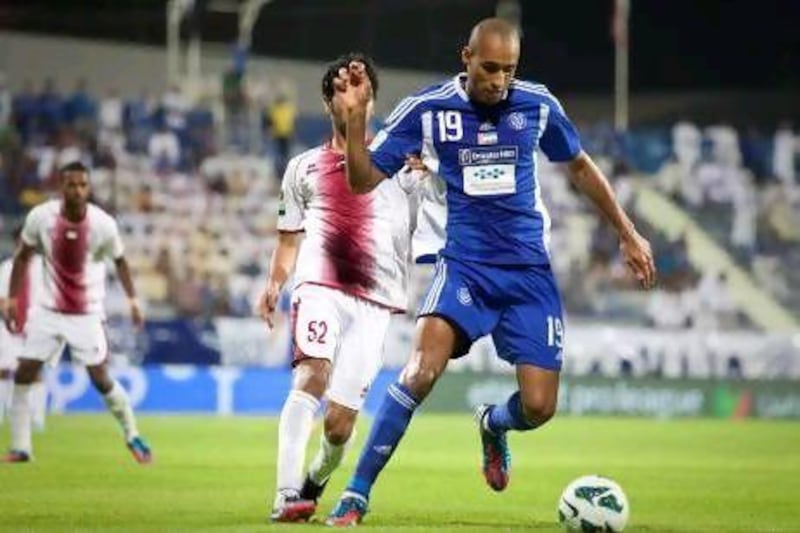DUBAI // It is a good job for Walter Zenga, the combustible manager of Al Nasr, the Pro League's title sponsor is a telecommunications company.
The Italian coach spent much of last night's victory over Al Wahda on the phone to his assistant, having been sent to the stands after half an hour of the game.
The angry nature of his dismissal, when he blew up at the referee for something as piffling as an offside, suggests he could spend much of his time in the near future there, too. His wasel account balance is going to run dry in no time.
After the match Zenga said he believed the referee had planned to send him off.
"In the 32 minute of the game I said to the referee that there was an offside, he said if I said one more thing he would send me off and I told him he should send me off then.
"This was the first thing I said to the referee in the match.
"I think it was premeditated by him."
Happily for Zenga, his players were well-drilled enough not to notice he was gone. Or Nashat Akram, the Iraqi midfielder, who was also sent off late on for two yellow cards.
They won this game with ease, on the back of a neatly-conceived hat-trick by Bruno Cesar, their Brazilian forward.
As is often the case in the UAE's top division, the story of the match could mostly be told with barely a reference to an Emirati, so dominant were the hired hands from overseas.
Admittedly, their influence was both good and bad. The good was Linardo Lima, the Brazilian creator who was at his enigmatic best in the Nasr midfield.
Aside from pulling the strings all game from his deep lying role in midfield, it was he who won the initial header from a corner for the opening goal.
Cesar profited from Lima's saved header, heading into an unguarded net from a yard out. His second and third were far more aesthetically pleasing: one a delightful lob from outside the box, the other a cool finish when through on goal.
Wahda would have been worse off if Akram, the third influential import, had been on his game.
The evening did not start well for the Iraqi midfielder. Before the kick off, the Nasr players had been given small gifts to throw to the crowd as a gesture of thanks for support. Akram missed.
To be fair to him, it was easily done. The crowd was relatively small at that point, but were still in good voice for their first game here since the Maktoum Stadium underwent an upgrade.
The changes were imperceptible, other than the odd bit of official looking bunting. Most of that was papered over by homemade signs from the supporters, anyway, the most prominent of which was a homage to their manager reading: "In WZ1 we trust."
They had to trust in him in absentia here. Zenga was dismissed for an outburst at the referee.
He stormed off, but then lurked in the tunnel with angry intent. The official stopped the game, apparently making a contingency to have the Italian forcibly ejected, before Zenga eventually departed of his own accord.
The coach must be doing something right. His side were mostly untroubled from there on in, even if Tawfeeq Al Hosani scored a late goal to give the Abu Dhabi side something to cheer from their trip to Oud Metha.
Even then, Humaid Abbas had time to add another for Nasr, fittingly from a pass by Cesar.
Branko Ivancovic, the Al Wahda manager, said after the match: "We came here to try to do something and we had lots of reasons to be optimistic.
"When we conceded an early goal we had to make changes to the way we played. Against a side like Al Nasr you have to take the chances that come your way. At 1-0 we had chances to do that, but we didn't take them."
Follow us
[ @SprtNationalUAE ]






